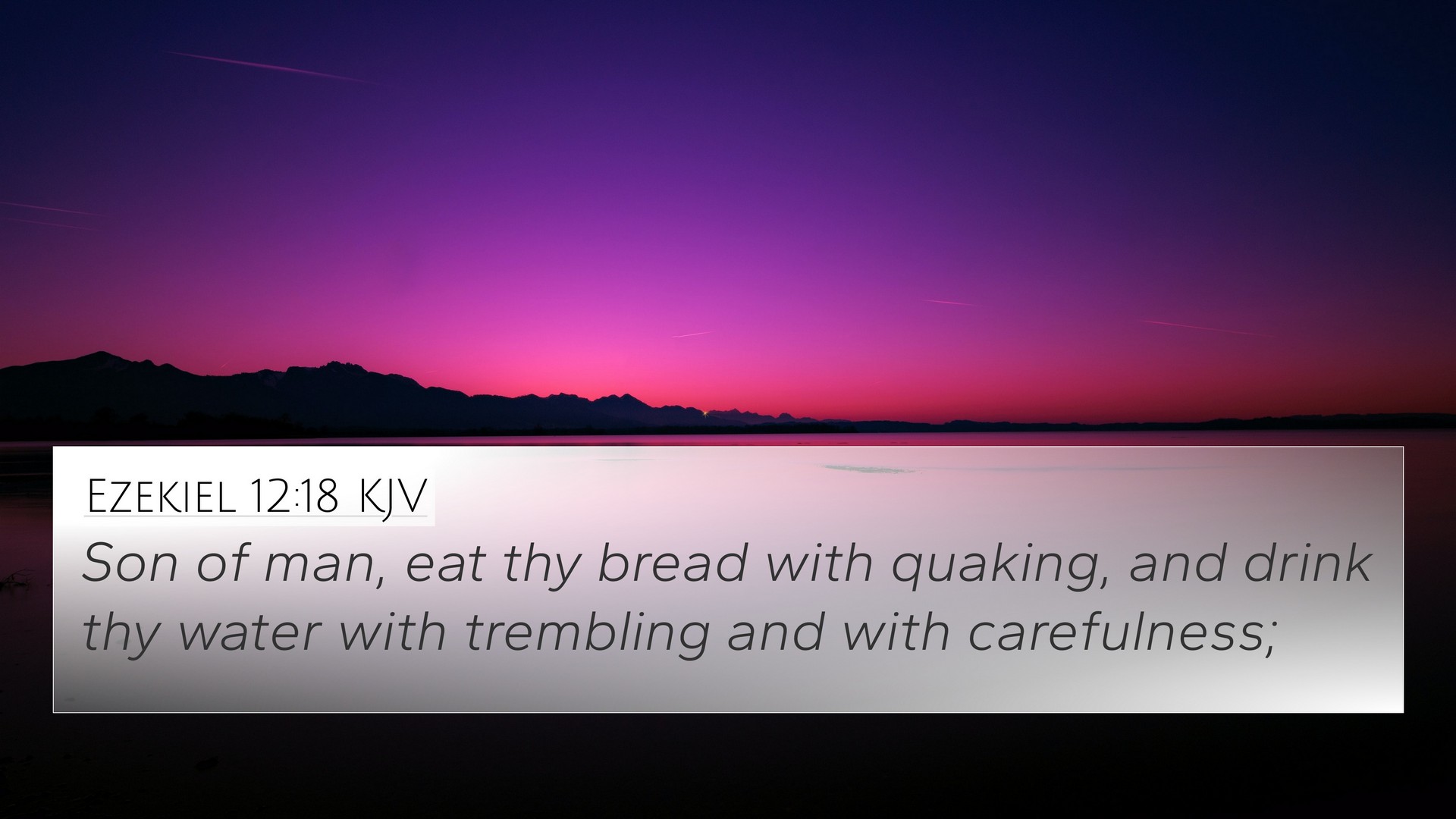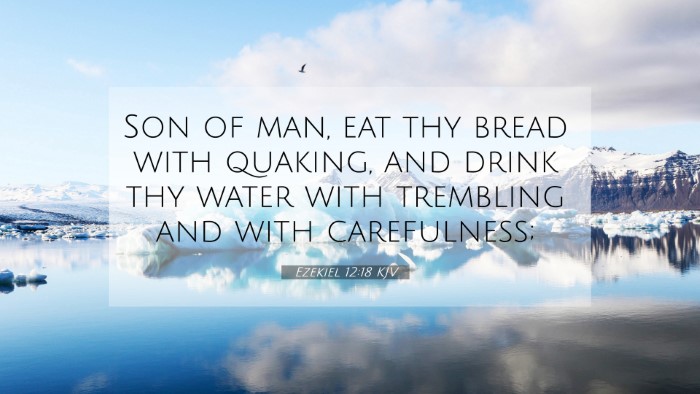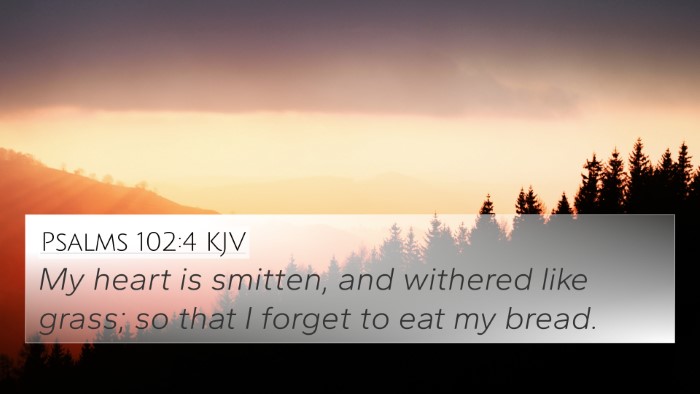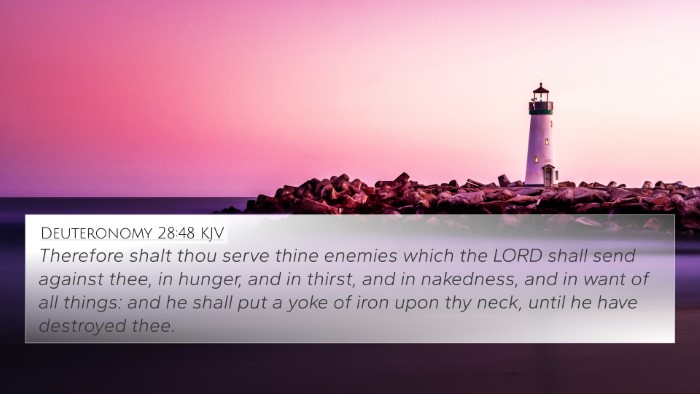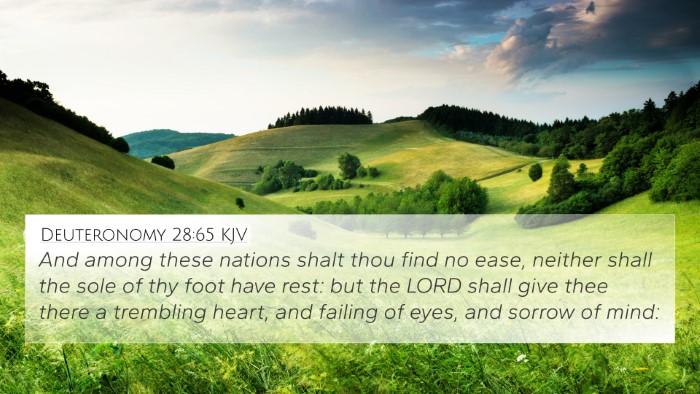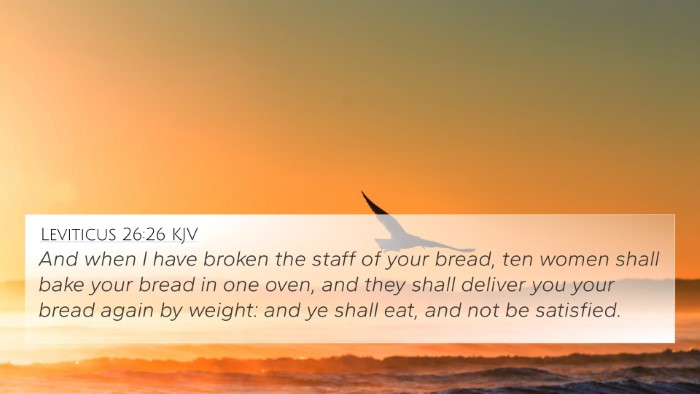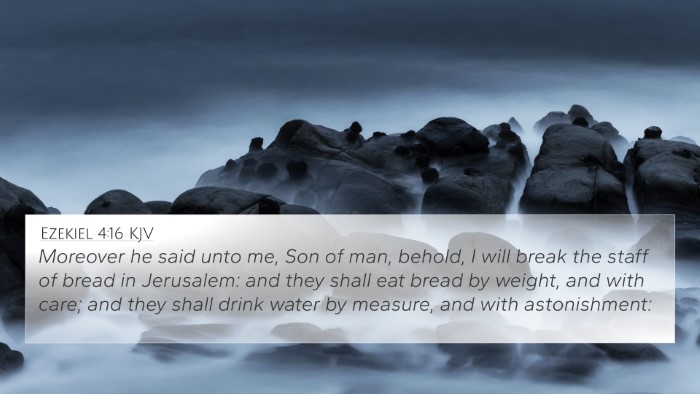Ezekiel 12:18 - Summary and Interpretation
Ezekiel 12:18 states: "Son of man, eat thy bread with quaking, and drink thy water with trembling and with carefulness."
This verse is part of a prophetic message from God through the prophet Ezekiel, containing deep spiritual and metaphorical implications. Understanding this verse requires us to look at the broader context of God's message to the people of Israel during their exile.
Interpretative Insights
Here are some key insights from notable public domain commentaries regarding Ezekiel 12:18:
-
Matthew Henry's Commentary:
Henry emphasizes the significance of the visible actions of the prophet—eating and drinking in fear—as symbolic of the dire situation of the Israelites during the Babylonian captivity. The act of eating with quaking denotes the anxiety and uncertainty surrounding their fate.
-
Albert Barnes' Notes:
Barnes notes that this reflects God's command to Ezekiel, showcasing the seriousness of the impending judgment and the need for the people to recognize their plight. This action serves as a poignant protest against the false sense of security that the exiled Israelites might have felt, causing them to understand their need for repentance.
-
Adam Clarke's Commentary:
Clarke interprets the phrase as a reflection of divine judgment. He relates it to the broader theme of prophetic actions demonstrating truths about Israel’s historical and immediate circumstances. Eating and drinking with care symbolizes their loss and the precariousness of their condition in exile.
Underlying Themes in Ezekiel 12:18
The overarching themes present in Ezekiel 12:18 include:
- Judgment and Consequence: The verse underscores the consequences of turning away from God. The bread and water symbolize sustenance yet highlight the tension of survival amidst God's judgment.
- Symbolism of Actions: God's directive to Ezekiel to eat and drink in fear signifies a lived response to the divine message, mirroring how individuals should respond to God's warnings.
- Exile Experience: The condition of the Israelites in Babylon serves as a stark reminder of the results of disobedience, compelling them to respond with humility and contrition.
Cross-References Related to Ezekiel 12:18
Below are some Bible verse cross-references related to Ezekiel 12:18 that illustrate the themes of judgment, repentance, and prophetic witness:
- Isaiah 40:31 - "But they that wait upon the Lord shall renew their strength; they shall mount up with wings as eagles..."
- Lamentations 1:1-2 - This passage depicts the sorrow of Jerusalem and its desolation, relating to the feelings of loss expressed in Ezekiel.
- Jeremiah 25:29 - "For lo, I begin to bring evil on the city which is called by my name..." illustrating God's impending judgment.
- Matthew 24:42 - "Watch therefore: for ye know not what hour your Lord doth come," which conveys a sense of urgency in recognizing God’s warnings.
- Luke 21:34 - "And take heed to yourselves, lest at any time your hearts be overcharged with surfeiting and drunkenness..." demonstrating the call for vigilance during dire circumstances.
- Romans 12:1 - "I beseech you therefore, brethren, by the mercies of God, that ye present your bodies a living sacrifice..." highlighting the need for a responsive life before God.
- James 4:9 - "Be afflicted, and mourn, and weep: let your laughter be turned to mourning..." echoes the theme of repentance and sober recognition of one's situation.
Applying the Insights from Ezekiel 12:18
When considering Ezekiel 12:18 and its implications, believers are encouraged to:
- Engage in Reflection: Understand their current spiritual standing and the seriousness with which they respond to God's messages.
- Use Tools for Bible Cross-Referencing: Engage with scripture using methods such as a Bible concordance or cross-reference guide to discover interconnected themes throughout the Bible.
- Maintain an Attitude of Vigilance: Being alert to God’s voice amid the distractions of life allows for genuine transformation and responsiveness in faith.
Conclusion
Ezekiel 12:18 highlights the importance of recognizing the gravity of sin and the need for a genuine response to God's directives. The insights from historical commentators reveal the multilayered meanings enclosed in this verse, along with its operations within the larger narrative of scripture. By engaging across the biblical text through cross-referencing, individuals can deepen their understanding of God’s will, interpret thematic connections more effectively, and come closer to fully applying divine truths in their lives.
